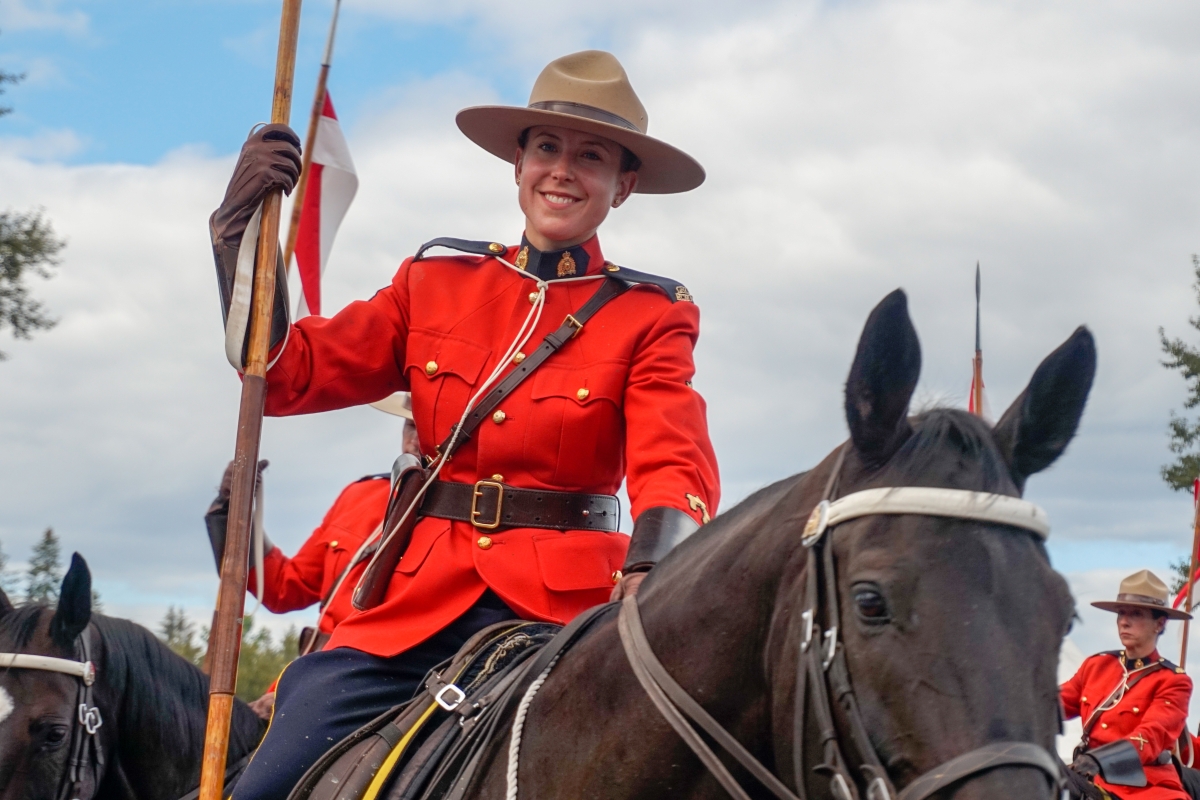Career Overview
Commissioned police officers and related occupations in public protection services:
- Plan, organize, direct, control and evaluate police force administration and police activities such as maintaining law and order and detecting and preventing crime
- Work for municipal, provincial and federal governments
- Includes officers from the rank of staff sergeant to police commissioner
- Commissioned officers in the railway police, deputy chief coroners and deputy chief medical examiners are also included in this group
Job Titles
Duties
Commissioned police officers perform some or all of the following duties:
- Plan, organize, direct, control and evaluate the activities of a police force or division of a police force
- Create and carry out police force policies and procedures
- Oversee police investigations and ensure that procedures are carried out in accordance with laws and regulations
- Assess performance of subordinates and authorize promotions, transfers and disciplinary actions
- Co-ordinate and monitor budget and departmental resources
Special Duties
Depending on provincial and territorial legislation, deputy chief coroners and deputy chief medical examiners may act as or be appointed to the position of chief coroner and chief medical examiner in their absence
Earnings
Earnings is income that workers receive in exchange for their labour. Depending on the type of employment, earnings can be in the form of wages (hourly), salaries (fixed monthly or annual) or self-employed earnings.
Work Environment
# Workers Employed
160% Employed Full Time
100%Work in this occupation is typically performed in a structured environment, such as an office.
Career Pathways
Career path information is currently not available.
Related Careers
Occupational Interests
It’s important to understand what kinds of occupations align with your interests.
For more about occupational interests visit Skills for the Future Workforce > Characteristics.
Here are the top occupational interest(s) for this career profile:
Education, Training and Skills
- Completion of secondary school is required
- University degree in the social sciences or in business administration may be required
- Several years of experience as a police officer are required
Education programs in B.C.
The following program areas are related to this occupation:
- Business Administration/Management/Commerce
- Criminal Justice/Criminology
- Anthropology
- Economics (Arts)
- Geography (Arts)
- History
- Political Science/Studies
- Psychology (Arts)
- Sociology
- Geography/Earth Sciences Related
- Economics (Science)

Skills
Every job calls for a certain set of skills. Knowing those skills is the first step in finding a good career fit.
Here, you will find the 10 most relevant workplace skills. Some are more important to achieving success in a certain career than others. These skills may come naturally to you or you may need to gain them through education, training and experience.
See the list of work-related skills below, ranked in order of importance for this career. Check out the list and see if this career matches your skills—take that first step!
Giving full attention to what other people are saying, taking time to understand the points being made, asking questions as appropriate, and not interrupting at inappropriate times.
Keeping track of and assessing your performance, other individuals, or organizations to make improvements or take corrective action.
Being aware of others’ reactions and understanding why they react as they do.
Talking to others to share information effectively.
Adjusting actions in relation to others' actions.
Using logic and reasoning to identify the strengths and weaknesses of alternative solutions, conclusions or approaches to problems.
Understanding written sentences and paragraphs in work-related documents.
Managing one’s own time and the time of others.
Motivating, developing and directing people as they work, and identifying the best people for the job.
Understanding how new information could be used to solve current and future problems in making decisions.
Labour Market Statistics
Discover data, facts and information that have been gathered and analyzed. Learn about the characteristics of the economy and labour market in B.C.
Employment
Find out about employment types and trends by region and industry.
Employment
160Employment by Region







| Region | Employment | % Employment of this Occupation |
|---|---|---|
| Cariboo | 10 | 6.1% |
| Kootenay | 10 | 6.1% |
| Mainland/Southwest | 95 | 57.6% |
| North Coast and Nechako | 0 | 0.0% |
| Northeast | 0 | 0.0% |
| Thompson-Okanagan | 0 | 0.0% |
| Vancouver Island/Coast | 40 | 24.2% |
Labour Market Outlook
The B.C. Labour Market Outlook is a 10-year forecast of the expected supply and demand for labour in the province. It’s usually updated every year. The purpose is to provide British Columbians with the knowledge to make informed decisions on careers, skills training, education and hiring.
Forecasted Job Openings (2024-2034)
130Forecasted Job Openings
Forecasted Employment Growth Rate
Composition of Job Openings
Job Openings by Region (2024-2034)







| Region | Job Openings | Avg. Annual Employment Growth |
|---|---|---|
| Cariboo | Not available | Not available |
| Kootenay | Not available | Not available |
| Mainland/Southwest | 100 | 1.8% |
| North Coast and Nechako | Not available | Not available |
| Northeast | Not available | Not available |
| Thompson-Okanagan | Not available | Not available |
| Vancouver Island/Coast | 40 | 1.3% |
Industry Highlights
Learn about the opportunities in B.C.'s major industries, including employment trends, earning potential, locations of work and more.
Forecasted Job Openings by Industry
| Industry | Job Openings (2024-2034) |
|---|---|
| Public Administration | 130 |
Resources
-
Justice Institute of British Columbia (JIBC) Career Pathswww.jibc.ca/career-paths
-
Metro Vancouver Transit Policewww.transitpolice.bc.ca
-
Royal Canadian Mounted Police (RCMP) Careerswww.rcmp-grc.gc.ca/recruiting-recrutement/index-eng.htm
-
Royal Canadian Mounted Police (RCMP) E-Division (B.C.)bc.rcmp-grc.gc.ca
-
Victoria Police Department Careerswww.vicpd.ca/careers







